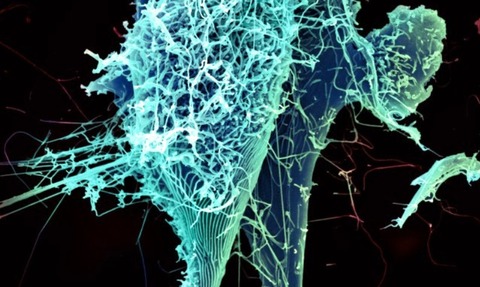Union calls for Ebola drug funding
27 Oct 2014

The survival rate for those who catch Ebola is roughly 30%, suggesting immunity to the disease is possible, immunology union says.
The International Union of Immunology Societies (IUIS) has called for the rapid and adequate funding of phase one and phase two human clinical trials on experimental Ebola vaccines and therapies.
The IUIS has stated that successful efficacy trials of Ebola drugs could lead to the “speedy implementation” of immunisation in African countries.
“The current Ebola outbreak is an unprecedented disaster for humans
Prof Clive Gray
The current West Africa Ebola epidemic, which has severely affected people in Liberia, Sierra Leone and Guinea, among other African nations, has claimed the lives of more than 4,500 people, with global cases passing 10,000, the World Health Organisation (WHO) recently reported.
“The current Ebola outbreak is an unprecedented disaster for humans. This virus cunningly hijacks the human immune system with devastating effects. Without blocking transmission, Ebola may become endemic,” said Clive Gray, member of the Clinical Immunology Committee of the IUIS.
“Efforts are being made on health communication in order to prevent the spread of this virus from person to person. This is essential but not enough. Stakeholders need to work together to accelerate the roll out of vaccines and therapies,” Gray said.
In a statement published today in the IUIS journal Frontiers in Immunology, vaccination was earmarked as a vital strategy for disease containment and control.
According to the IUIS statement, no licensed vaccines exist on the market, but “significant progress” has been made in recent years and especially in the last few months.
Last Friday, for example, WHO announced pharmaceutical companies were “committed” to developed millions of doses of Ebola vaccine by the end of 2015.
Likewise, the Canadian public health agency recently announced it was commencing human clinical trials on an Ebola vaccine (VSV-EBOV) at the Walter Reed Army Institute of Research in Silver Spring, Maryland, US.
Marylyn Addo, professor at the University Medical Centre, Germany, said: “Understanding how immunity works in survivors of Ebola may further contribute to strategic vaccine design and optimisation.
“We need to speed up the development process in order to advance clinical testing and, ultimately, the deployment of effective vaccines. However, despite the urgency of the situation, the safety of the vaccines for recipients needs to be ensured and cannot be compromised.”

